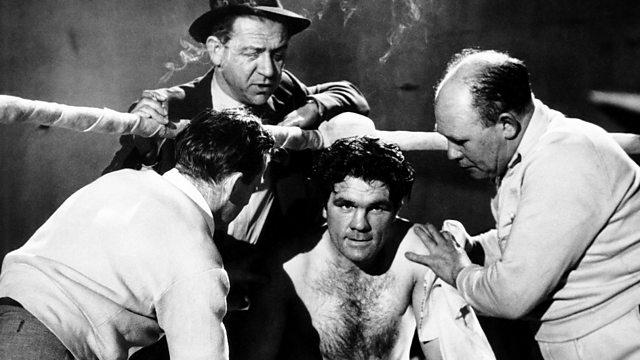They don’t make boxers like Freddie Mills any more. A granite lump of grinning charisma, he had a brow and jawline straight from a kids’ cartoon and, despite his humble origins and thuggish contours, a charmingly well-to-do voice. Mills was light heavyweight world champ for a time, then drifted into showbiz and, eventually, running a nightclub in Soho. Then he died in sudden and mysterious circumstances.
His body was found in the back of his Citroen on the night of 24 July 1965. There was a single shot from air rifle through his right eye, from which dangled a lone blob of congealed blood. The coroner returned a verdict of suicide which his family disputed then and still do. There have been plenty of theories, and they were all aired in the feature-length documentary Murder in Soho: Who Killed Freddie Mills? (BBC Four). The most obvious suggested that he suffered from depression brought on by brain damage sustained in the ring. A more fanciful notion was that Mills was Jack the Stripper, a serial killer who murdered several prostitutes in and around Hammersmith and whose final victim was himself.
But before it started exploring the plausibility of these theories, Simon Dales’s film set the scene with a tour through Mills’ life and times as a ducker, weaver and puncher who landed the British title during the war and after it beat the overwhelming favourite Gus Lesnevich to the world heavyweight title. Footage of these bouts survive, and they make every high-intensity boxing film you’ve ever seen look like a vicar’s tea party. It was less Queensberry Rules than Colosseum rules: referees were non-interventionist back in the day, leaving the two prizefighters to slug each other halfway to intensive care. One punch sent Mills’s opponent spectacularly toppling head first from the ring.
Alongside this eye-popping footage were plenty of home movies shot by Mills, in which he comes across as a fun-loving joker who made a natural progression into light entertainment. Then he opened a nightclub in Soho and in the Sixties they tended to attract the attention of racketeers and mobsters. “Most clubs are very respectable,” said Ronnie Kray in an interview, butter not melting in his mouth, “and I don’t think there’s any trouble at all in them. Except occasionally.” The Krays’ rivals were the Richardsons. Eddie Richardson, interviewed for this film, explained that “if someone took a liberty they got their comeuppance. That was all.” Not long after that he terminated the interview, thinking he’d said quite enough.
So who shot Freddie Mills? Almost certainly not himself, said everyone apart from Eddie. It’s no spoiler to report, as it’s been reported elsewhere already, that another theory proposes Mills, in debt, attempted to blackmail an old boxing associate Benny Huntman, who regretfully but with the blessing of America’s chief casino mobster Meyer Lansky had him bumped off. The film climaxed with an encounter between Mills’s stepson Don McCorkindale and Huntman’s son Roger. The latter supplied what he thought was compelling evidence while apologising for not having mentioned all this decades earlier, having been in fear for his own life.
The film, while intricately considering the clues, felt a little fatter than it needed to be. There were touching interviews with Mills’s two daughters, while a long parade of talking heads all offered their ha’p’worth, sometimes on off-topic subjects in which they could claim no expertise: a lecturer in criminology opined that Mills’s was a rags-to-riches story, while a bow-tied professor in forensics yakked on about boxing. But this was a painstaking and often absorbing inquiry into a cold case that will never solved.















Add comment